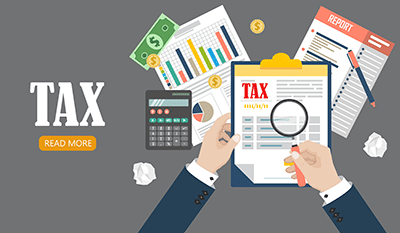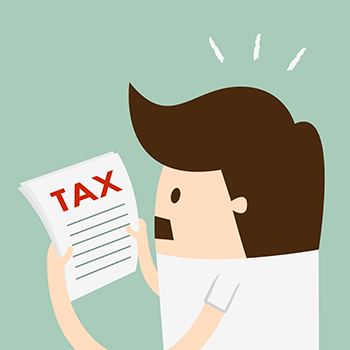

When you sell your house in Massachusetts, did you know you have to pay taxes on the profit from that sale? Capital gains taxes are incurred whenever capital assets like a house, condominium, or investment property experience an increase in value and then are sold to another party. When that capital asset sells, the gains are said to be realized by you as the property owner. And you will owe taxes on the sale to the IRS, because selling your house at a profit is a taxable event.
There are a number of ways to avoid this being too costly and it is far better to be prepared ahead of time. Tax planning when you sell a house is complex and your financial situation is completely unique from other homeowners. As a result, our article here is meant to be just a brief introduction and primer to this topic and we encourage you to do more research on your own in order to understand how capital gains taxes will affect you as a home seller in Massachusetts.
Tax Knowlege Helps You Save
You may be in a position right now where you’re thinking, “I want to sell my houses fast in Massachusetts.” But as you prepare for that sale, capital gains taxes are an important topic that is definitely worth understanding. By knowing exactly how the IRS calculates capital gains you are able to maximize your profits and legally limit the amount of tax you must pay.
There are two types of capital gains according to the IRS; depending on whether you had held these assets for just a short period of time (typically less than 12 months) or a longer period of time. You are able to deduct what is known as your cost basis or original purchase price before you determine how much the property has gained. In addition, you are allowed to deduct any of the cost you had to improve the property prior to selling it. As a result, it is vitally important you keep regular detailed records of all the costs associated with your house or investment property.

A solid understanding of how capital gains taxes are assessed and excellent records detailing the purchase and improvements you’ve made on your house will be crucial to minimizing your capital gains taxes. You should always have your tax strategy in place prior to selling so there won’t be any surprise and large tax bills coming due after you sell your house. This is a somewhat complicated topic particularly if you’re not used to dealing with this type of tax, so you should do some research and even talk to a qualified accountant or tax lawyer.
Capital Gains Taxes Have Limits

When it comes time to sell your Massachusetts house or investment property your capital gains will be calculated according to the annual income that you declare to the IRS. For example, a capital gains rate of 15% would be taxed if you make at least $80,000 but less than approximately $440,000. These numbers will vary if you are filing as a single person or if you’re filing as a married couple. If you have an income of greater than $440,000, when you sell your MA property the capital gains tax rises to 20 percent. There are a few exceptions for which you may qualify. It’s important to note that if for some reason you’ve actually lost money when you sold your house or investment property you are allowed to offset those taxes against other tax liabilities you may have. Again there are limits and it is worthwhile to do some further research, or seek help from a professional fully qualified in preparing Massachusetts tax returns.
As an example, let’s say you sell your home in Massachusetts in 2022. If you have used this house as your primary residence for at least two of the last five years, you can be eligible for an exclusion to this capital gains tax up to an amount of $500,000 if you are a married couple filing jointly. For those filing in their own name only there is an exclusion in the amount of $250,000 over the cost basis of the property.
We cannot stress enough that you should always seek qualified professional help when making important tax decisions such as these. Capital gains taxes can prove very costly if you are not planning effectively and keeping good records. This article is only an absolutely small starter on the topic and doesn’t claim to be legal advice in any way. By having a strong team of professionals behind you, you are much more likely to comply with all applicable tax laws while saving the maximum amount of money.

In Conclusion
Regardless of when you sell your house in Massachusetts, taxes in general and capitals gains taxes in particular are topics that make most of us glaze over and cry for help! Isn’t that true? But it’s important to get familiar with the general concepts and find a qualified professional to help you limit the taxes you pay to the absolute legal minimum.
Summit Buys Houses can be a valuable ally to you in deciding how sell your house in Massachusetts quickly and tax-efficiently. We are the premiere cash home buyers in Massachusetts and our long list of satisfied clients is a testament to our experience and caring for your needs.
We are “The Local Guys” who buy houses in Massachusetts for cash. And we do it quickly and smoothly making sure you are then care of every step of the way. You stay in control because you decide when is the best time to sell, and we pay all of the closing costs, cleaning and repairs. Why not give us a call today at (978) 254-3800 and we’ll walk you though our process.
You’ll quickly see why the Better Business Bureau of Mass. has awarded us their highest business rating. It’s an honor we’ve earned by helping home owners like you sell the homes quickly and profitably in the shortest amount of time.

We buy houses for cash all over Massachusetts in places like Lowell, Woburn, Fitchburg, Andover, Billerica, Burlington and Westford to name just a few. So if you’re interested in selling your home anywhere in the Middlesex, Essex and Worcester counties of Massachusetts—contact us for a quick, confidential, no-obligation cash offer and the best, no-pressure advice. “Summit Buys Houses” is Summit RE Group LLC and is registered to operate in Massachusetts, New Hampshire and Nevada.

